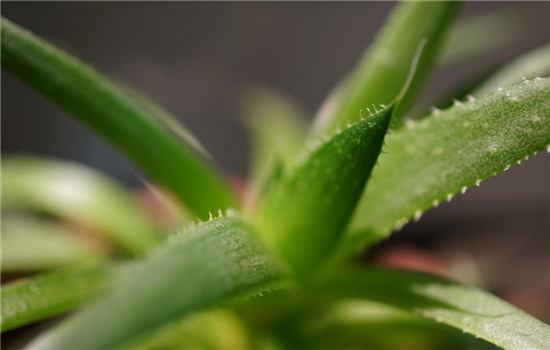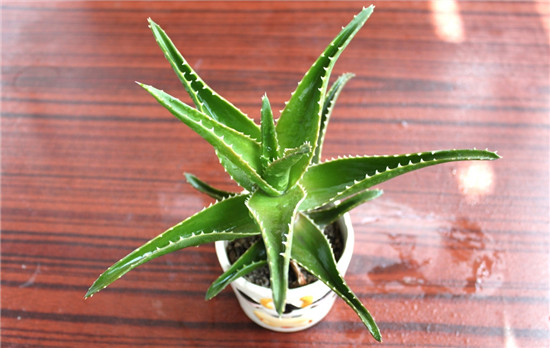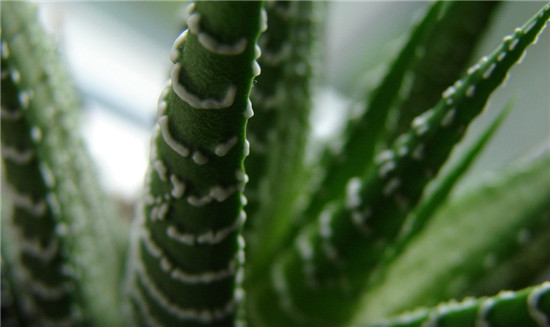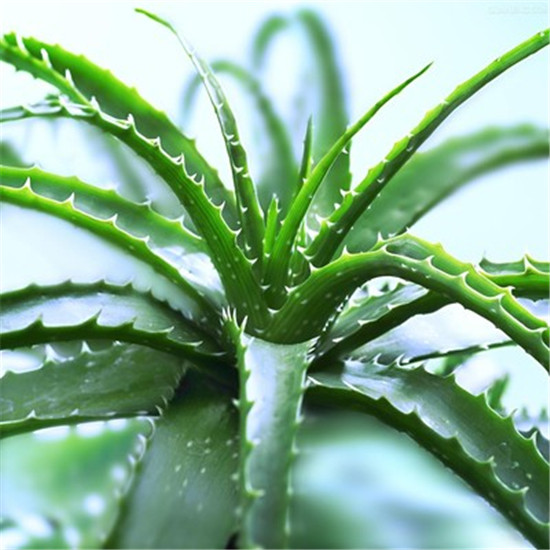[uses of aloe] what are the uses of aloe?
Aloe is mainly distributed in Africa and other places, this plant is very popular, mainly because it is easy to grow, it is an ornamental plant with both flowers and leaves. Next, let's take a look at the uses of aloe.

Aloe has many uses, detoxification and anti-inflammation is one of them. Aloe contains phenols, aloin, aloe tincture, organic acids and other ingredients, which can kill some bacteria, fungi and viruses. it has a certain therapeutic effect on some respiratory tract and digestive tract inflammation, upper respiratory tract infection, pneumonia, enteritis, dysentery and other diseases should be used dialectically, not blindly so as not to cause harm.
Invigorating the stomach and relieving defecation is also the use of aloe, which can enhance gastrointestinal function and increase appetite. People with loss of appetite and indigestion can eat aloe to improve gastrointestinal function and strengthen their physique. Aloe can also purge and defecate. Middle-aged and elderly people are prone to constipation, constipation is easy to aggravate cardio-cerebrovascular disease, causing their own poisoning, you can eat aloe vera at this time. Aloin can increase the secretion of digestive juice and promote intestinal peristalsis. it can defecate 8-12 hours after taking it.

The use of aloe also includes invigorating the upright and dispelling evil, and the mucopolysaccharide in aloe has a good effect of strengthening the positive and dispelling evil, which can improve the immunity of the body and enhance the immune function of the human body. Tumors, hyperlipidemia, diabetes, hepatitis B, nephritis, lupus erythematosus and other diseases, it is good to eat aloe properly. Aloe also has the effects of anti-aging, anti-allergy, cardiotonic and diuretic, which is beneficial to the health of the elderly. Therefore, it is good for the elderly to take aloe vera properly, but it should not be taken too much, because aloe itself has a small amount of toxin, which may lead to poisoning.
The beauty and beauty function of aloe:
1. Aloe facial beauty: apply fresh aloe leaf juice directly to the face for 20 minutes, which will make the facial skin look very smooth, white and tender, and can also solve the problems such as facial freckles and chloasma.
2. Aloe lipstick: lips are most prone to dry cracks in autumn and winter, natural drying of this sensitive lip is easy to have different conditions, and aloe vera with strong cosmetic effect can also be used to make lipstick. Use aloe vera with honey and apply it directly to the lips to prevent dry lips. The skin on the lips absorbs nutrients and strengthens the blood circulation, which gradually leads to blood color on the lips and a more moisturizing feeling on the lips.

3. Aloe lotion: clean and mash aloe, filter out leaf juice with gauze, wash face with aloe makeup water, cooperate with finger massage, it will have a strong effect. This self-made aloe water can not only solve the problem of facial relaxation, but also effective for problems such as large pores.
4. Aloe to remove acne: fresh aloe leaves are pressed to extract juice, diluted with water, smeared on the face, for malignant acne, the affected part can be affixed with mesophyll before going to bed, and all acne disappears within a few days.
5. Aloe moisturizer: aloe has a powerful cosmetic effect, which can reduce wrinkles and help moisturize the skin. Make aloe into moisturizer, apply it evenly on the whole face, wait for 15 minutes, rinse directly with warm water. And regular use can keep the face ruddy and healthy, maintain youthful vitality.
The medicinal effects of aloe:
1. Aloe has the effect of invigorating stomach and diarrhea: among all rhubarb glycoside laxatives, aloe has the strongest irritation, accompanied by significant abdominal pain and pelvic congestion, and can cause glomerulonephritis in severe cases. The main action site of aloe is in the large intestine and has no peristaltic effect on the small intestine.

2. Aloe germicidal effect: aloe contains the substance of aloe tincture in the rain, which is a strong antibacterial substance. Can kill general bacteria, fungi, can inhibit the reproduction of pathogens.
3. Aloe anti-inflammatory effect: the bradykinin of aloe can resist inflammation and has a very good effect on dermatitis, bronchitis and other chronic diseases.
4. Aloe detoxification: the ingredients of aloe can promote the liver to decompose toxins in the body, inhibit excessive immune reaction, and remove metabolic waste in the body. And aloe can treat and regenerate new cells.
5. Aloe promotes healing: it can promote the healing of artificial traumatic rats, and shorten the healing time for rabbits with artificial conjunctival edema. Aloe juice preparation has protective effects on skin trauma, burns and local X-ray irradiation.
6. Aloe has analgesic and sedative effects: aloe has analgesic and sedative effects. In the case of toothache and finger swelling and pain, aloe leaves can be applied to the affected area, that is, it can eliminate swelling and pain and is effective for neuralgia, gout and muscle pain. In addition, taking aloe vera internally can also treat hangovers and carsickness.
These are all the contents of the use of aloe that I have summarized for you. I hope this article can help you. Please continue to follow us.
Aloe juice preparation has protective effects on skin trauma, burns and local X-ray irradiation.
6. Aloe has analgesic and sedative effects: aloe has analgesic and sedative effects. In the case of toothache and finger swelling and pain, aloe leaves can be applied to the affected area, that is, it can eliminate swelling and pain and is effective for neuralgia, gout and muscle pain. In addition, taking aloe vera internally can also treat hangovers and carsickness.
These are all the contents of the use of aloe that I have summarized for you. I hope this article can help you. Please continue to follow us.
Related
- Wuhan Hospital Iron Tree Blooming Result Was Instantly Frightened by the Gardener Master
- Which variety of camellia is the most fragrant and best? Which one do you like best?
- What is the small blue coat, the breeding methods and matters needing attention of the succulent plant
- Dormancy time and maintenance management of succulent plants during dormancy
- Minas succulent how to raise, Minas succulent plant pictures
- What are the varieties of winter succulent plants
- How to raise succulent plants in twelve rolls? let's take a look at some experience of breeding twelve rolls.
- Attention should be paid to water control for succulent plants during dormant period (winter and summer)
- Watering experience of twelve rolls of succulent plants
- Techniques for fertilizing succulent plants. An article will let you know how to fertilize succulent plants.



